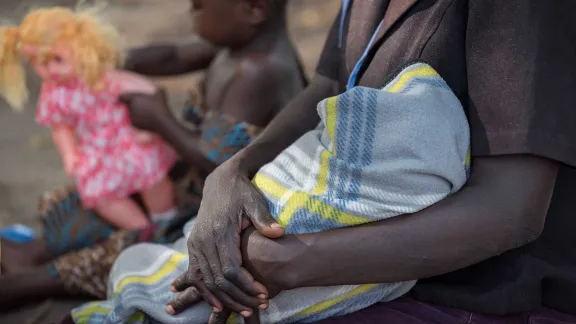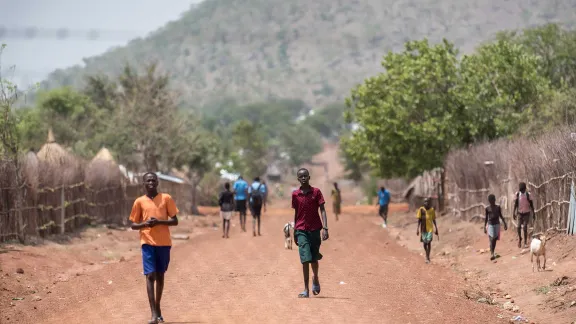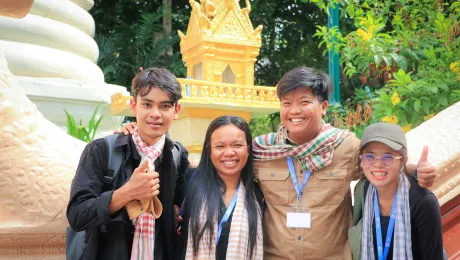LWF and partners have received a six million EUR grant for multipurpose cash assistance to refugees in Uganda. The grant comes at a time when the refugee response in the country faces severe funding cuts.

A woman with her children at the Iboa Health Centre, Obongi district of northern Uganda, where LWF and Medical Teams International provide support to malnourished refugee children and mothers. Photo: LWF/Albin Hillert
6 million Euro for cash-based assistance
(LWI) - LWF's work with refugees in Uganda has just received a large donation from the European Union: The EU’s Humanitarian Aid Operations (ECHO) has decided a new grant of six million EUR to the Uganda Cash Consortium (UCC) to continue the provision of cash-based assistance across refugee settlements in Uganda. The UCC is led by the Danish Refugee Council (DRC) in partnership with the Lutheran World Federation (LWF) as implementing partner.
More than 44,000 refugee community members will receive monthly payments to meet their most basic needs. Cash will also be provided to over 18,000 children and adolescents, including approximately 1,300 Ugandan nationals, who are currently out of school or at risk of dropping out.
Funding cuts in Uganda
The grant comes at a time when the refugee response in Uganda faces severe funding cuts. The United Nations refugee agency, UNHCR, cut the assistance to refugees in Uganda by 45 percent at the beginning of 2023. “Several institutional funders have either stopped, about to stop their humanitarian funding streams because of the perception that Uganda is not at an acute phase of its displacement crisis”, says Lokiru Yohana, LWF Regional Program Coordinator for East Africa. “The World Food Program has significantly reduced food rations distributed to refugees because there is not enough money available.”
Uganda currently hosts about 1.5 million refugees, many of them from South Sudan and the Democratic Republic of Congo.
Most newly arrived refugees are extremely vulnerable and need the full package of basic needs and protection services.
Lokiru Matendo YOHANA, Regional Program Coordinator
At the same time, Uganda continues to receive new refugees daily from the DRC and from South Sudan because of instability in the two neighbouring countries. “Most newly arrived refugees are extremely vulnerable and need the full package of basic needs and protection services, but this is not provided because of severe shortage of funding”, Yohana adds. Consequently, some refugees make the difficult decision to return to their country of origin despite the ongoing conflict. Others have moved to neighbouring countries hoping for better conditions while some have unfortunately attempted or committed suicide. There is a lot of anxiety among many households fearing for their survival with much reduced or no food rations at all.
More money needed
The ECHO grant will help a great deal in this dire situation, but more money is needed to provide assistance to the most vulnerable refugees, says Adriana Franco Chitanana, LWF Country Representative in Uganda. "At these funding levels, the UCC cash assistance will reach 12% of the refugees in Uganda which are highly vulnerable.“

Nyumanzi refugee settlement in Northern Uganda is home to 50,000 refugees, the majority from South Sudan. Photo: LWF/ Albin Hillert
“I met with a group of women refugees from South Sudan who live in Nyumanzi Refugee Settlement, Adjumani district in northern Uganda.” Franco Chitanana continued. “They are anxious about the changes in food rations: their main concern is their children. They asked me what to do when they are hungry after school but there is nothing to give them. For now, we can only address few of these cases. It will be a tough transition for many refugees in Uganda.“


